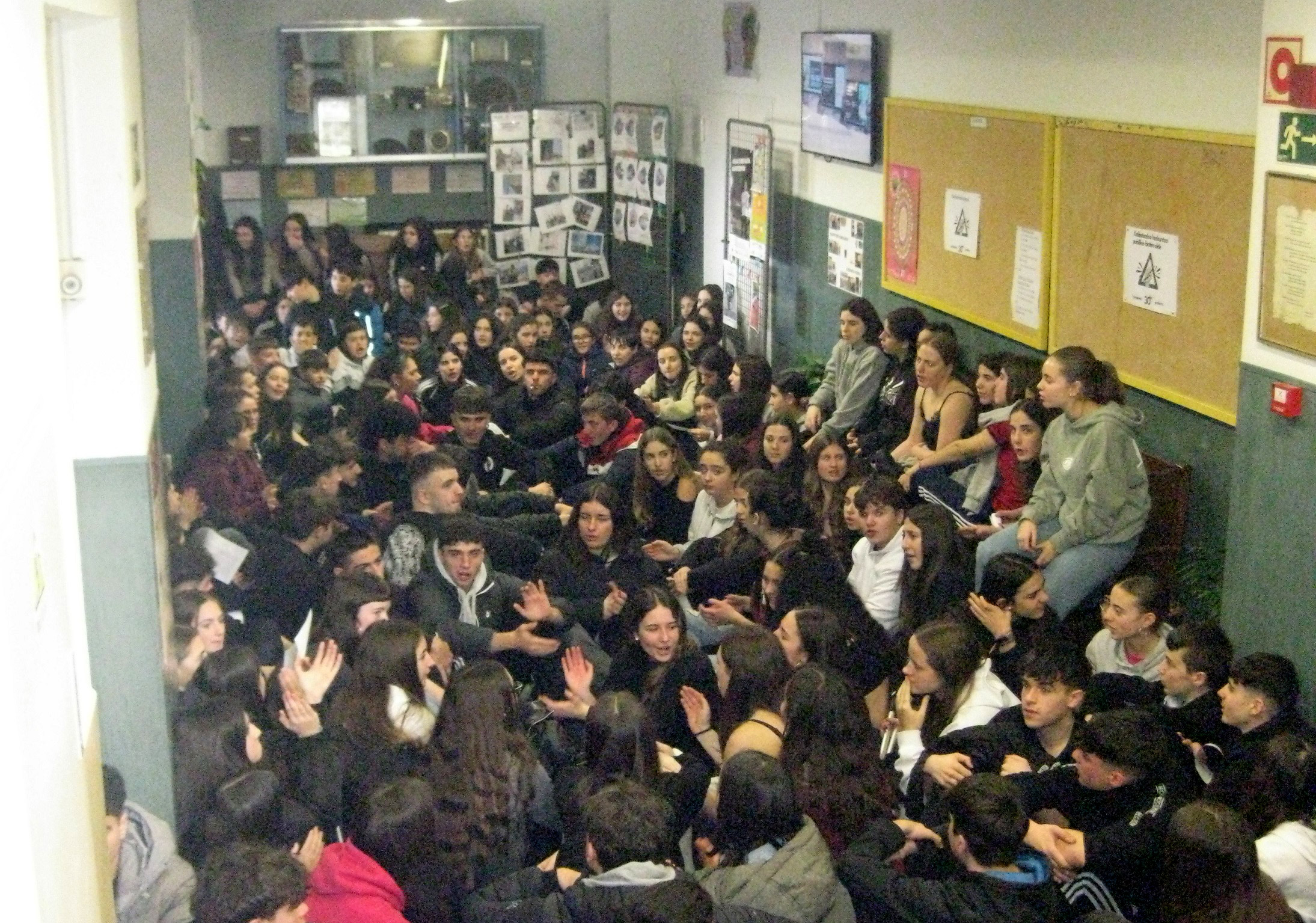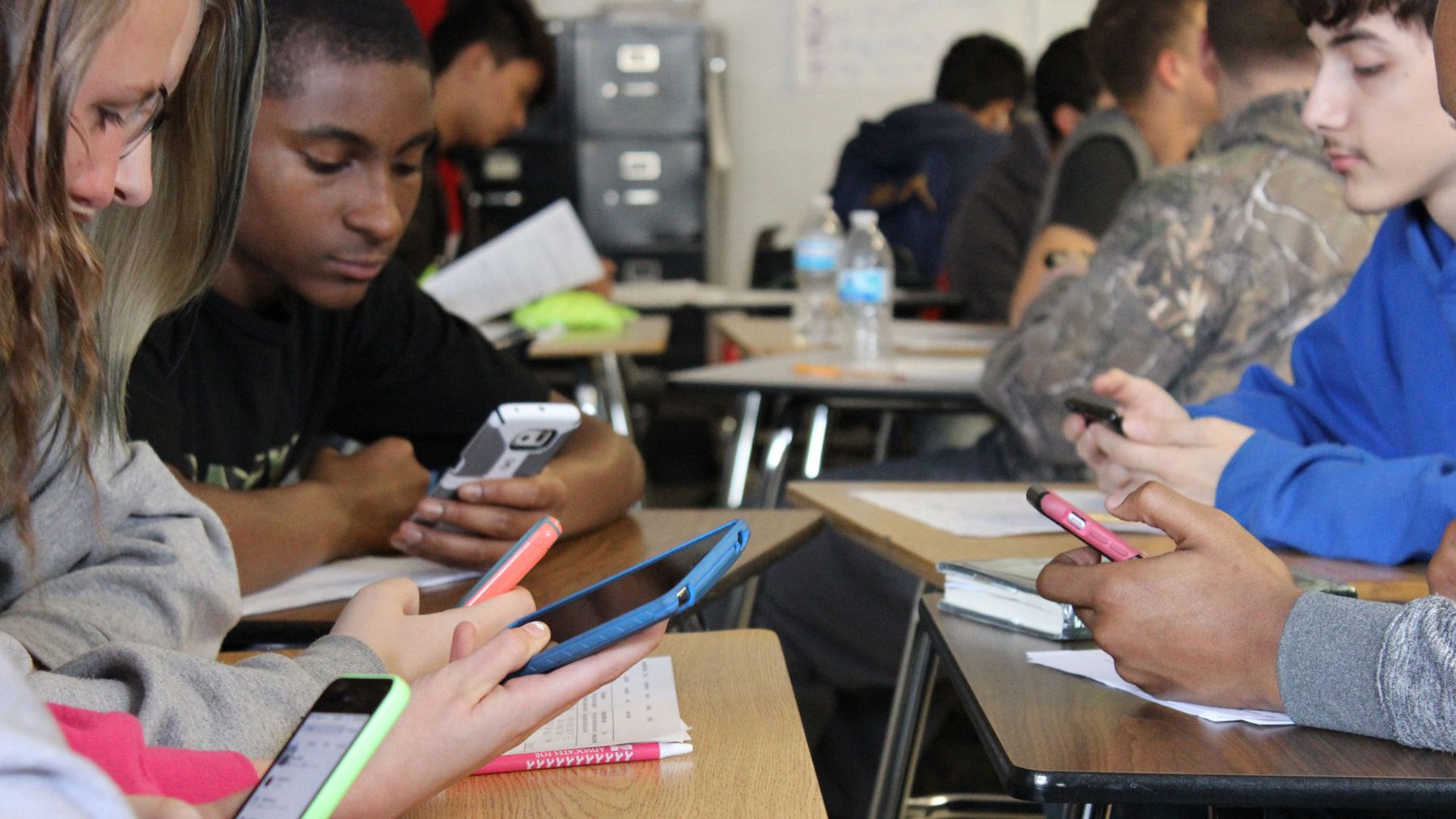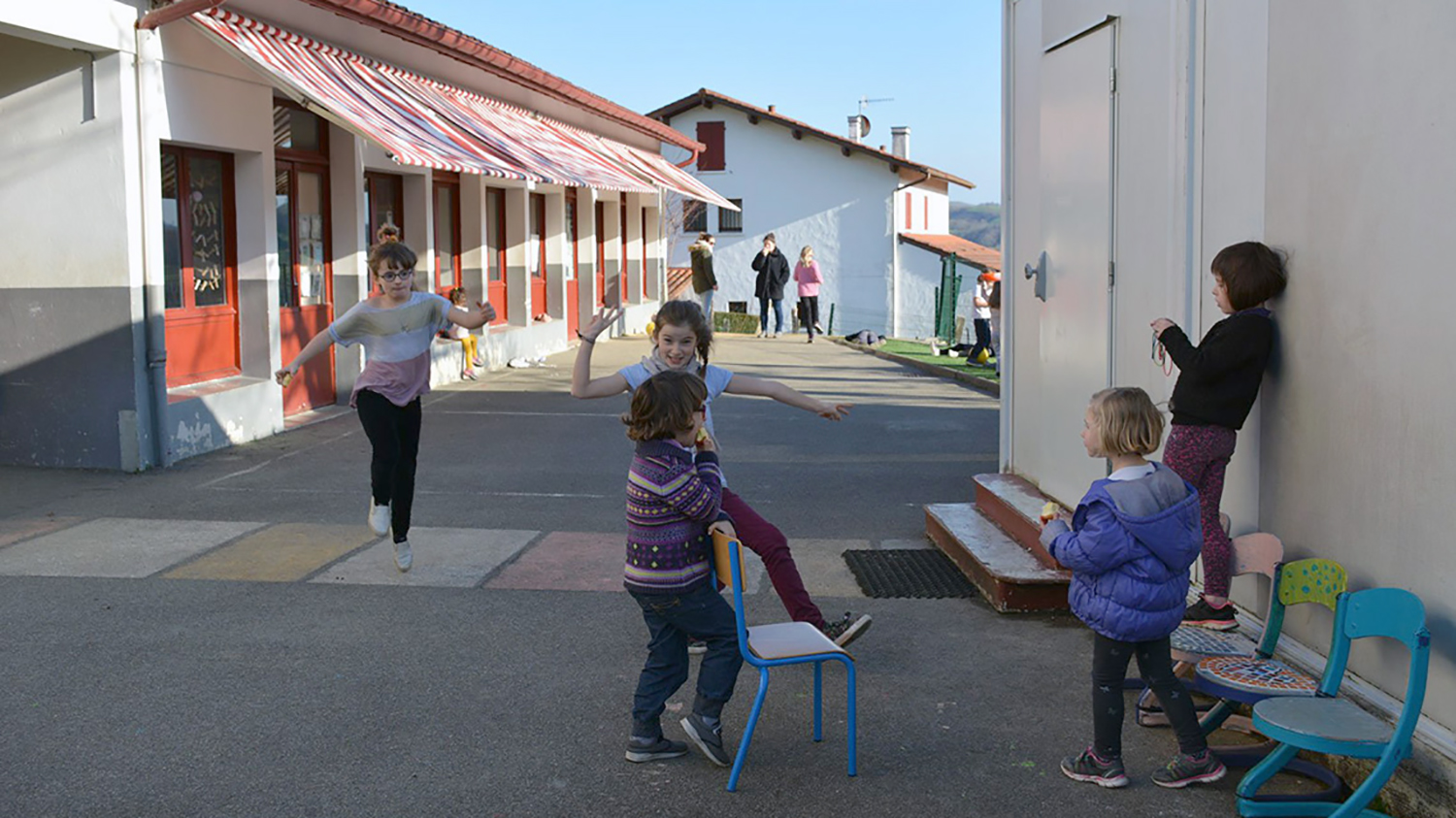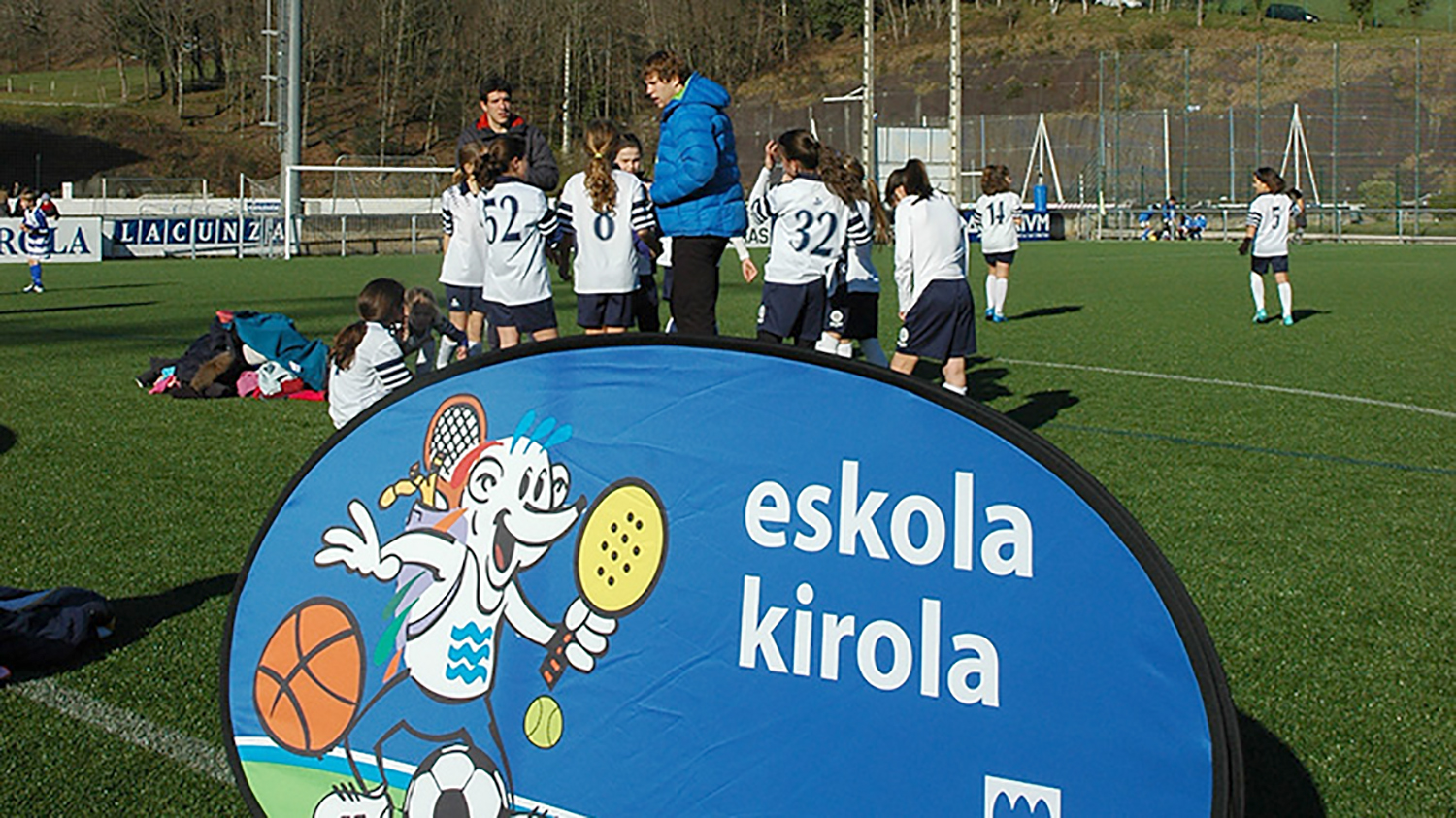BeAtarrak: a model that aims to revolutionize innovation in public schools has a chaotic start
- The Government has reduced the Berritzegunes providing innovation and advisory services to CAV public centres and has created a new position in schools: BeAtarra. At least one per center, responsible for innovation. We talked to a BeAtar of confusing releases and lights and shadows of model change.

An unknown figure has landed overnight in public school last year: 900 In total, one or two in each center, freed from school hours and with the diagnostic and innovation function of all areas of the center (co-existence, co-education, Agenda 30, digitalization, methodological changes…).
A BeAtar who doesn't want to enroll tells us his experience. He says that the principle has been chaotic, that things have been done "rushing and hurting" and that there has been great ignorance. For example, of the 900 BeAtarras mentioned, one third have been substitute teachers (think about it, who have never stepped into that school, who are concerned about the diagnosis and improvement of that school), and another third have been teachers who do not want that post but who have put it into it.
“The start has been very hard, they changed the guidelines and the organization three times by November; we made video calls of 900 people, imagine what is a video call of 900 people, all together!” He adds that the training has been very improvised, that it has arrived quickly, with haste and delay (“the programming training was given to us in May, also that of the afternoon evaluation… About to finish the course, it makes no sense”).
The interviewee is clear to whom he asks, the new figure has landed better or worse in his center. In some schools they have been able to take advantage of the new role, in others they have not known what they have used the position for, and have even used this personal resource to cover other deficiencies in some centers.
The Basque Government has invested an amount of money in these 900 posts, but critical voices have denounced that they cut in education and invest in the other.
The Berritzegunes have merged and reduced in number and the main victims are students with special needs. We must not forget that in the Berritzegunes, in addition to innovation and advice, they have the function of meeting special needs.
What about the Berritzegunes?
Turning the Berritzegunes model and now that each centre has its own responsibility for innovation carries the risk of atomization, walking each in its zortziko. In order to avoid this, the BeAtarrak shall be organized by zones of influence: the BeAtarrak shall be gathered from the schools of the district or area of influence.
Indeed, as a result of the elimination of the prominence of the Berritzegunes from the Basque Government, some have criticised the loss of support and advice from the Berritzegunes to date with local schools in areas. Because the centralization of the Berritzegunes is clear: Everything goes under the umbrella of the Berritzegune Nagusia located in Bilbao (some local Berritzegunes workers are also direct workers of the Berritzegune Nagusia). The Berritzegunes of the areas have already merged and reduced in number, with students with special needs being the main affected. It should not be forgotten that in the Berritzegunes, in addition to innovation and advice, they have the function of attending to special needs, and this course the lack of staff of the Berritzegunes has left sequelae both in the observation and psychopedagogical evaluation of students and in the care of families and schools. For example, a psychopedagogic therapist (PT) professor explains that this course has not been evaluated psychopedagogically at its center.
“For the Department of Education we have become almost like Wilds, they mention us in all the resolutions, they carry all the tasks over the BeAtar”
Overload and experience Digicurri
The implementation of the BeAtarrak, which until now had been carried out by the Berritzegune in the field of innovation, places a great burden on the new post, says the BeAtarra community: “If you look at the Department of Education’s resolutions, we’ve become almost like wilddogs, they speak to us in all the resolutions, they carry all the tasks over the BeAtar, but we don’t control all the issues, we are not superheroes who know everything.”
As an example, Digicurri's experience: “Digicurri is a program that explains the digitization and introduction of the curriculum, BeAtarro has had to manage it, and it has been an immense burden, and, in general, because all the teachers have had to do a training and a waste of time and strength, because the exercises were not well planned, they have been many hours… but, in general, the money from Next Generation had and we have to do it.”
The criticism, and with its lights and shadows, adds BeAtarra that the new role offers great possibilities: at the moment, the BeAtarra is dedicating its time to working for competences and areas at its center. Gradually, the Administration is improving, for example, for the next course the order has been specified: in principle it will be the professor with the final position who performs the function of BeAtar, not the substitute, and has to know the school. Time will tell what fruits this model change will bear.
The interviewee is clear: for many factors, some centers need more support and they have to be given in resources than others, because situations are very different and innovation cannot become a competitive element, some progressing and others falling behind. In this regard, the representative of Zubiak Eraikiz has criticized in the Parliament the program contracts that the new Education Act of the CAPV, because it is a program of contracts linked to innovation, “because it is proven that to compete among each other based on innovation projects, without focusing on the additional resources for inclusion”.
The Department of Education doesn't understand why public employees have gone on strike. He's got to ask the LAB Syndicate. This union signed an agreement with the department in April 2023. Two years later they have also called for a strike because, unlike the previous ones, the... [+]
Erretiratu berri den lankide-ohi baten omenez, Historiako irakaslea. Bejondeizula!
Hezkuntza-legeek azpimarratzen dute zein garrantzitsua den ikasleengan pentsamendu kritikoa sustatzea. Baina irakasle-klaustroak, garai batean ideien eztabaidarako eta proposamenak... [+]
I received your e-mail in personal mail on the strike portals. At first, like many others, I thought it was to let you know what options we have in the face of the strike. But no, the e-mail received was a political and communicative movement against the strike.
I will confess... [+]













.jpg)







